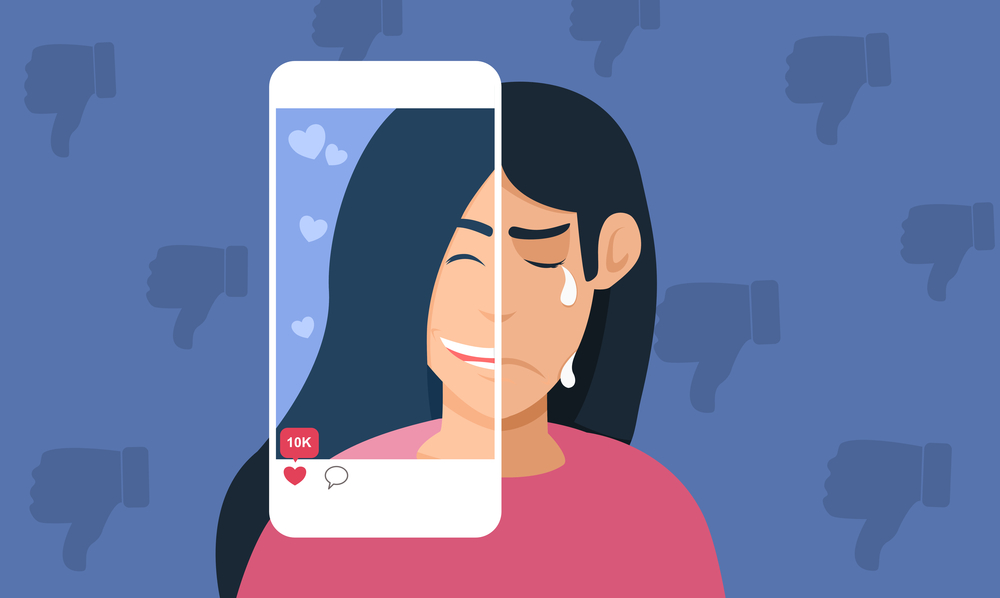In the age of social media, platforms like TikTok have become significant influencers in the realm of mental health, reshaping how people understand and identify with psychiatric diagnoses. Canadian researcher Owen Chevalier’s recent article explores the consequences of this phenomenon, offering a critical perspective on the interplay between viral content and psychiatric knowledge.
“I will sketch the immediate concerns the TikTok case raises for those looking to revise psychiatry—movements in psychiatric spaces toward a focus on patient advocacy and alternatives to a traditional expert-driven model,” Chevalier writes.
“In some ways, TikTok mental health communities are aligned with these movements, but they also provide a case study for why a standardized diagnostic manual and expert-driven discourse are still valuable. TikTok makes mental health terms more volatile and open to change without the developed methodology of institutional social science.”
Chevalier’s study, published in Philosophy, Psychiatry, & Psychology, provides a critical lens on how TikTok influencers, driven by profit-oriented algorithms, disseminate psychiatric knowledge in ways that can lead to unpredictable social and personal consequences.
Chevalier underscores the volatility of mental health terms when removed from the rigor of institutional science. While acknowledging the democratization of knowledge, the study calls for a cautious approach, emphasizing the need for a balanced discourse that considers both expert-driven methodologies and the evolving nature of public understanding mediated by social media.















“On the other hand, for all of its faults, the construction of the DSM arguably relies on a more careful scientific process than what informs opinion videos pushed by complex, mysterious, and profit-driven media algorithms.”
The author needs to explain why he seems to think voting so-called “mental disease” into existence is a “more careful scientific process” than some random Tik Tok video.
DSM diagnoses are opinions voted into existence by a group of self-serving psychiatrists, which might explain why something called ‘conflict of interest’ comes to mind.
The truth is that Tik Tok videos and DSM conferences have something in common: both are seriously deluded.
Report comment
What is “scientific” about the DSM? Perhaps the author needs to look up what “scientific” really means.
Report comment
I’m astonished someone so badly misinformed writes for MIA.
The author also needs to explain why he seems to think profit-driven groups of people (as in “psychiatry”) are any better than profit-driven media algorithms.
Report comment
“Chevalier underscores the volatility of mental health terms when removed from the rigor of institutional science.”
The important discussion surrounding the U.S.(specifically) psychiatric vocabulary and “…rigor of institutional science” vs. Social Media is moot unless you first address the DSM/ Pharma-influenced, profit-focused origins of those ‘terms’.
The sales-driven definitions and capture of ‘targets’ (too often, unchallenged when described as ‘life-long’) is the story. Appealing to troubled individuals with a label/identifier and ‘fix’ (drugs) is the issue.
“More careful scientific effort may go into the DSM than the average TikTok video, but that does not make the psy disciplines immune to things like institutional corruption and other issues in the science of psychiatry.”
“More careful scientific effort may go into the DSM, but….” and “…things like institutional corruption…” is the ‘horse’ pulling the cart here.
Respectfully, you’re uninformed regarding the origins and drivers of psychiatry & DSM…or the massive sales profits and influence it generates…protected by being the #3 donor-class in Washington.
The author buried the lead.
Report comment
But the insanity of the Tiktok and social media discourses on mental health is the logical and obvious result of the insane and non-factual understanding of the psychological and emotional injuries of social life which you call mental health. We say that these non-factual, insane social media discourses “are why a standardized diagnostic manual and expert-driven discourse are still valuable”, but this implies the acceptance of a standardized diagnostic manual to construe and characterize the infinitely varied and infinitely subtle phenomena of human psychological life is not itself a bit of insane, non-factual social discourse. The discourse of psychiatry and the academic social discourses on the phenomena of human psychological life are no less insane then the discourses on social media or the rantings of a psychotic like me. My mind is full of waterfalls, rainbows and flowers, and yours are full of ugly anaesthatizing words expressing the judgements and errors of a diseased acadamy in a diseased society. If your criticism of other discourses doesn’t begin with your own discursive self-criticism then it is blind hypocracy, which is all we know, intellectually.
Report comment
Infinite possibilities when you can see in the dark, because you could do anything. Infinite possibilities when you can’t see in the dark also, because anything could happen, anything could be there. So in darkness there are infinite possibilities. But in the light there is the truth, not the infinite possibilities but an infinite actuality. The infinite possibilities now seem like a dream. And this was the dreaming of you.
Report comment